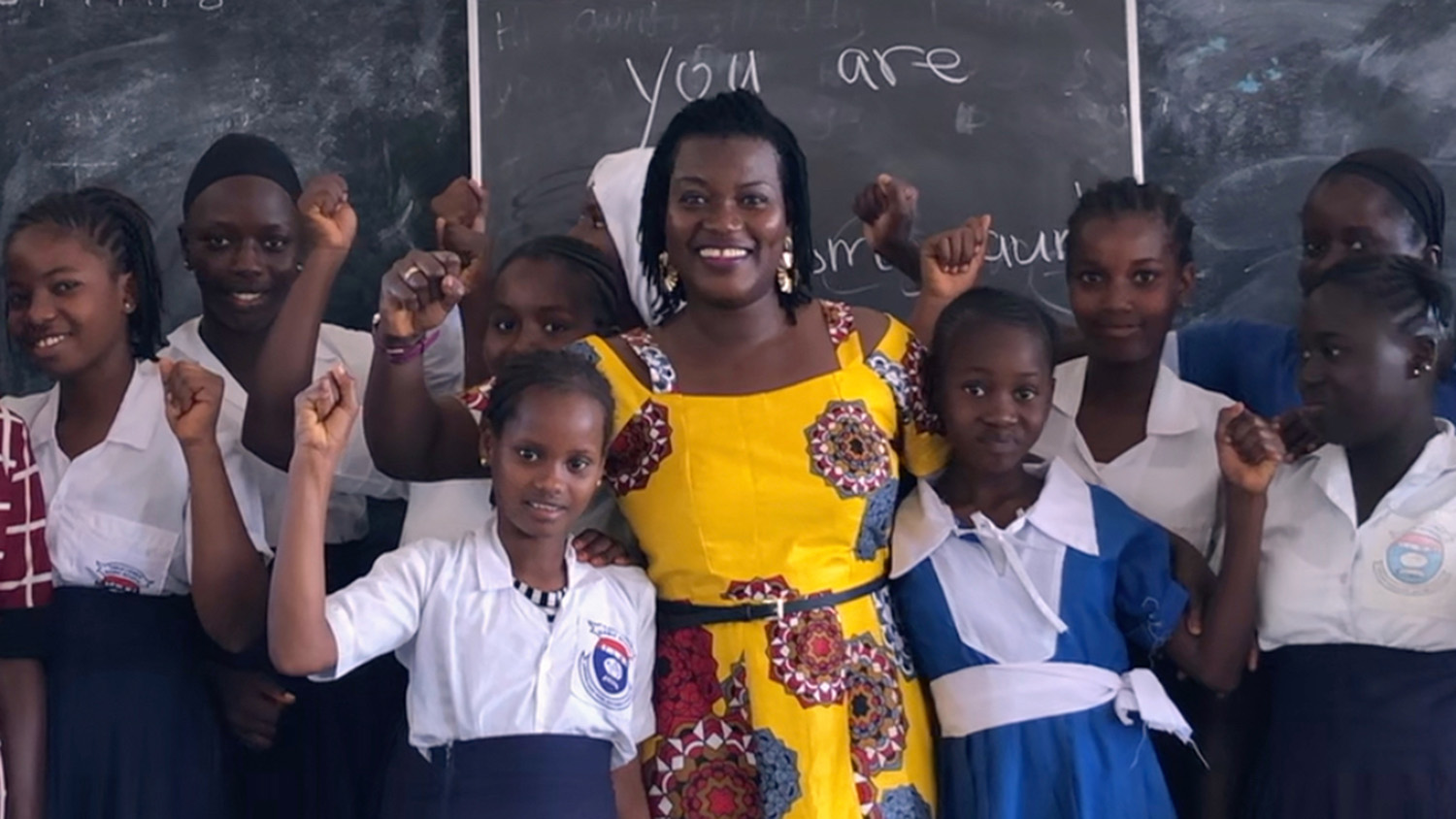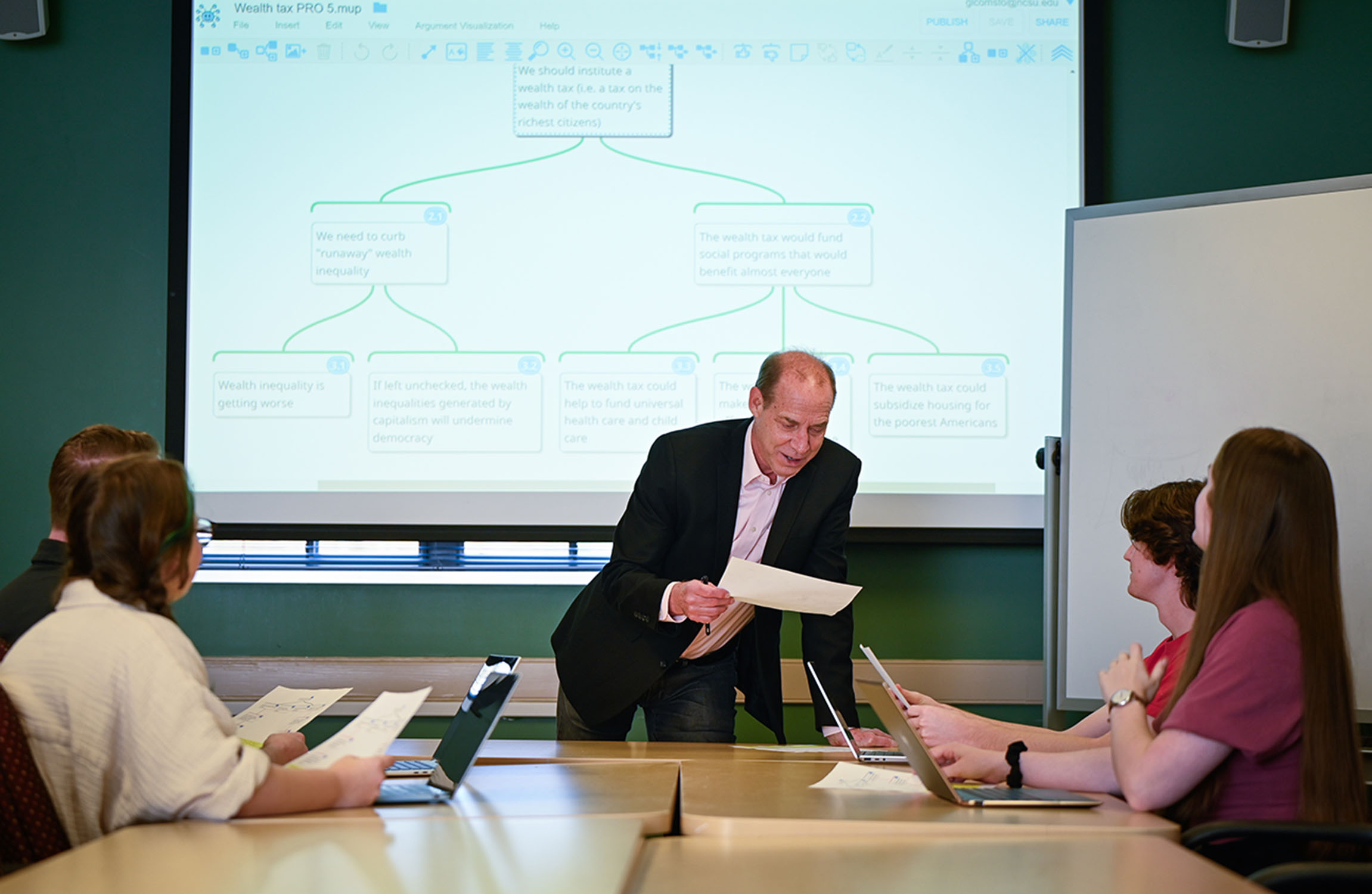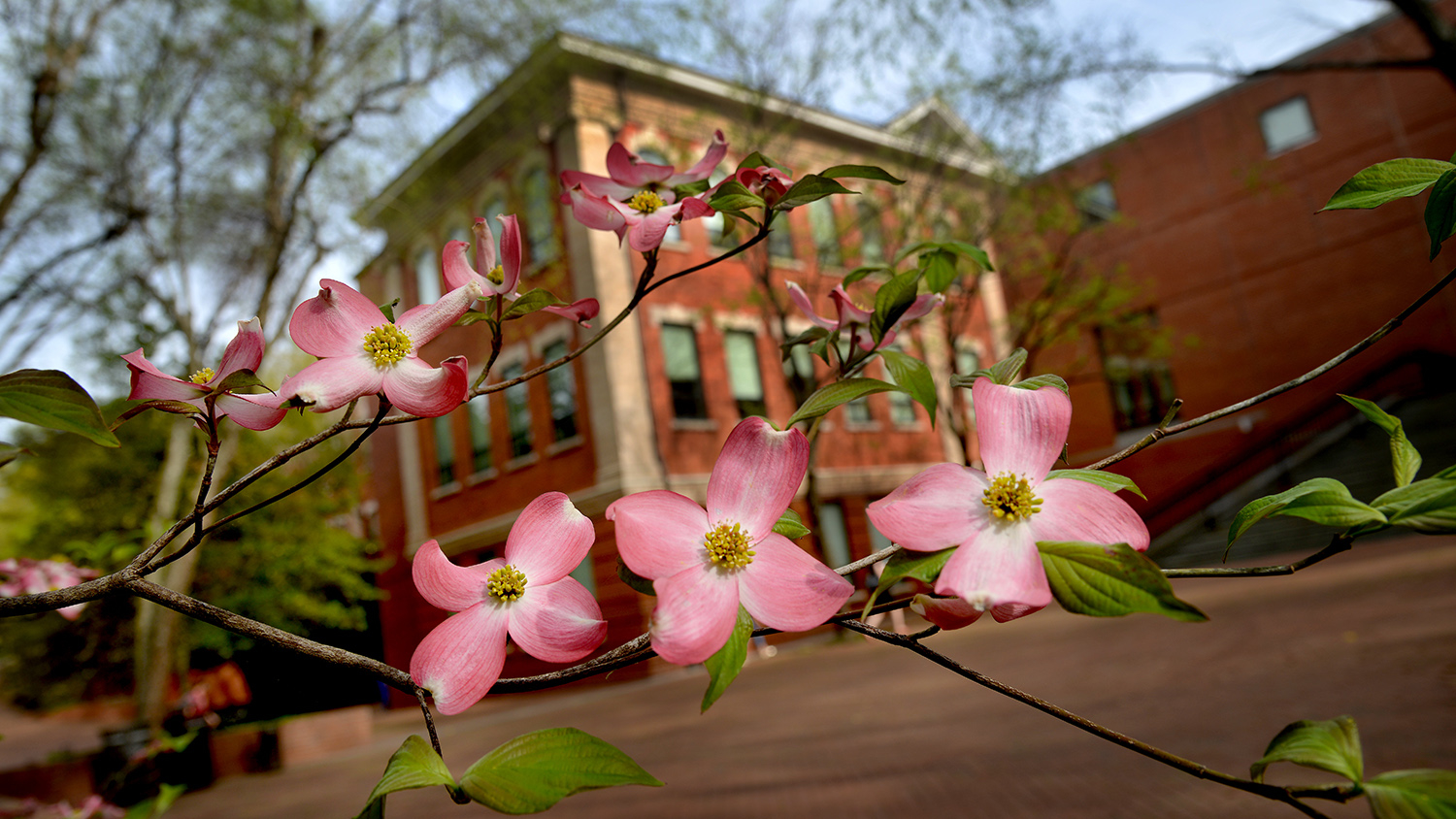I can … stand up for myself.
I can … achieve my dreams through hard work.
I can … be the best version of myself every day.
“I can …” is the uplifting slogan for Gambian Girl Power, a nonprofit founded by international studies professor Haddy Njie. The organization empowers girls, ages 7-13, in Gambia, West Africa, through education and mentorship, to build a positive self-image, academic resilience and success.
“I want girls to receive the ‘I can’ message early in their lives and apply it to their education and other life pursuits,” says Njie, a Gambian native. “Girls need positive role models and equal opportunities. That is the niche that Girl Power is filling.”
It’s also a niche Njie, a self-described gender activist, knows well. “I was brought up with a different set of rules than the males in my immediate and extended family,” she says. “Girls did all the household chores and those gender norms can affect girls’ educational attainment, success and overall self-concept.”
Such inequality, she adds, persists despite increased access to education for Gambian girls in the recent past.
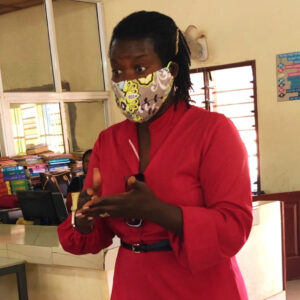
To help break that cycle, Njie, with collaborators in Gambia, launched Girl Power in 2018 at the elementary school she attended. The nonprofit now serves 175 members in four schools and hopes to operate in schools throughout the country.
Mentors follow a curriculum centered on five themes: love, problem solving, teamwork, respect and character. They also develop programs and activities, such as an annual career seminar and community service day, that help girls realize their potential.
Njie describes the approach as “holistic and transformative.” Mentors, committed to advancing girls’ education and bridging the gender achievement gap, serve as role models. So do the group’s board members, who hold key positions in the country, showing girls what is possible and attainable.
“Girls need positive role models and equal opportunities.”
Membership is open to all girls, and since its founding Girl Power has steadily attracted students — a trend expected to continue. The challenge to expansion, Njie says, is her group’s limited financial resources.
Njie’s passion for girls’ empowerment connects with her research at NC State on gender, education and development. And she often references Girl Power in her special topic courses as a “concrete response” to gender inequality.
Girl Power, she says, is a way to fight gender inequality in educational achievement, to change gender biases and to assure girls that, despite persistent gender norms, they needn’t follow traditional Gambian female roles.
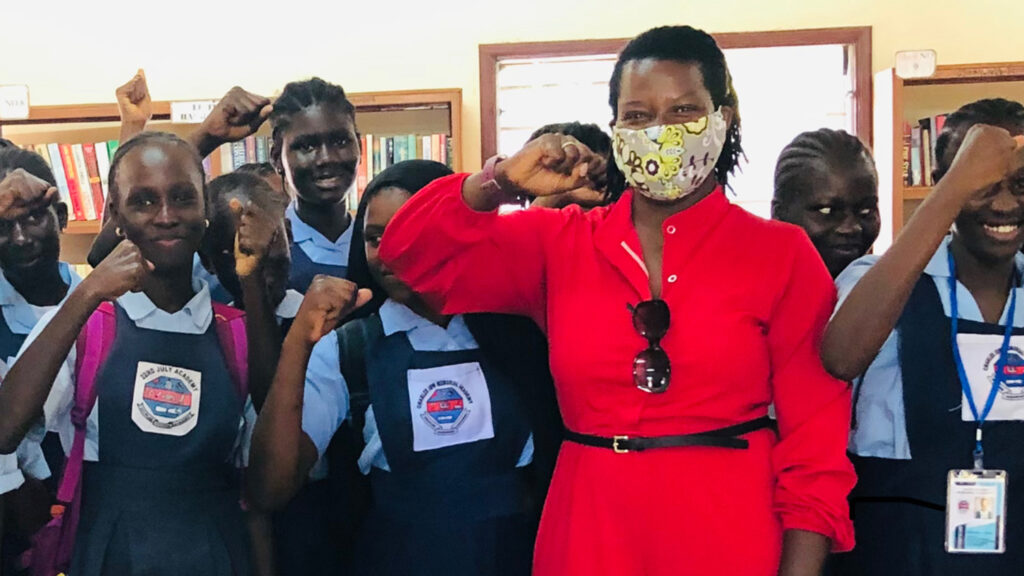
Njie conducted an evaluation of Girl Power with the help of international studies major Jailyn Gales. They found that being in the group positively impacted how girls view the value of education and how they view societal constraints to their academic success. The researchers also saw a boost in self-confidence among girls in leadership roles in the group and at school. They presented their findings at the Gender and Equity Symposium at NC State on April 14.
“Girl Power is an affirmation of my conviction that social scientists can do more than just research about social problems,” Njie says. “It is my first experiment to link my research with solving social issues and I am encouraged by the organization’s modest but impactful accomplishments.”
What’s next? “I hope to continue to use my research and voice for a fairer and just world for women and girls in Gambia and beyond,” she says. ”I also hope that Girl Power serves as a model for my students to apply NC State’s ‘think and do’ slogan to local and global causes.”
- Categories:
